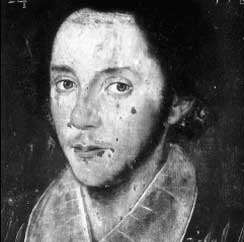 The Shakespeare players The Shakespeare players
Peter Ackroyd takes us into the dirt of Shakespeare’s London and gets to grips with the playwright’s genius, writes Illtyd Harrington
Shakespeare the Biography
Peter Ackroyd
Chatto and Windus £25
Next to Shakespeare’s grave in Stratfordupon- Avon – beneath a glass cover – is the parish register.
On one page is the entry of his birth, April 23, 1564. A few pages later is that of his death in the town on April 23, 1616. It was his 53rd birthday and Peter Ackroyd is in exhilarating form.
He releases Shakespeare from sanctity and succeeds in telling with great authority and rich colour the life of our greatest writer.
Shakespeare entered the world five years after Queen Elizabeth ascended the throne. If ever the tectonic plates were moving it was then. Half the population were under 20. The playwright’s father was a glover and a redoubtable local figure reputed to be a secret Roman Catholic.
There were 30 known Catholic families in the town but as the old faith faced growing repression he was not openly accused and remained a solid citizen.
Many believed that his son Will also held on to the forbidden religion. He attended the King’s New School six days a week. Apparently when he was five the Players came to Stratford and he probably saw them.
As a bright teenager he seems to have been a tutor to a northern Roman Catholic family sharing lives of the old aristocracy.
But he was back in Stratford by 1582 and appeared on the London stage in 1592. London was a four-day walk away or two days by coach.
He married Anne Hathaway in December 1582, when he was 26 and she was 18.
It was a marriage which seemed to work in spite of his long absences. The period between 1584 and 1592 are often referred to as Shakespeare’s Lost Years. Ackroyd believes he was a strolling player earning his bread learning his craft wherever it lead.
The Elizabethan world and London were the centre of an entrepreneurial explosion with massive incoming wealth. The capital’s population jumped from 50,000 in 1520 to 200,000 in 1600. No one conjures up the atmosphere of this bustling bursting overwhelming place better than Ackroyd.
This new metropolis was booming. Prodigious fortunes and bitter poverty confronted each other. A cultural revolution came with actors, writers, playwrights and musicians in the front row.
Shakespeare quickly responded to the times, which culminated in the building of the Globe.
In 25 years he wrote 36 plays, 10 of which dealt with English history with one eye on the Queen’s zealous advisers and censors.
Was he too accommodating to how they wanted history interpreted? The Tudor dynasty tolerated no serious opposition. In the meanwhile he went on steadily building up his assets in Stratford. Anne and their six children were always provided for.
Amid what has been called the ‘flowering of the English language’ Shakespeare loaned money and charged interest because there were no banks.
He saw to it that he stockpiled grain and malt back in Warwickshire holding it for sale at high profits during shortages. Secure in one or another of a nobleman’s company of actors.
He prospered and kept his nose clean although Elizabeth thought his Richard II was not to her liking and she could get quite shrill.
Often the recurring plagues or the threat of civil commotion drove the players on nationwide tours. His keen intelligence and curiosity were never satiated. He wrote rapidly on course paper with a quill of goose feathers.
People were becoming literate and buying books. Ever the businessman the playwright bought one of the biggest houses in Stratford for 60 pounds of silver.
His reputation in his home town grew. Popularity brought envy from rival Ben Jonson.
For 20 years Shakespear’s star shone as the paralysis of the long end of Elizabeth’s reign continued. It was calculated that his income was £250 a year but he actually dodged his poll tax by moving to south London.
The new king, James I, came down from Scotland in 1603 and was an enthusiastic supporter of the theatre. Shakespeare had found a new patron and was in Royal favour.
Macbeth seems to have been inspired by the Gunpowder Plot of November 1605. On Boxing Day King Lear, that mountain for actors to climb, was performed.
He continued to write on until 1611 with The Tempest.
Ackroyd is a superb historian and takes us with him back to Tudor England.
It is a big story which has already annoyed fossilised scholarship but is told in sparkling form and compelling style.
A circle complete, his genius and challenge Shakespeare the man looks out. As his epitaph said: “And curst be he who moves my bones.” |

